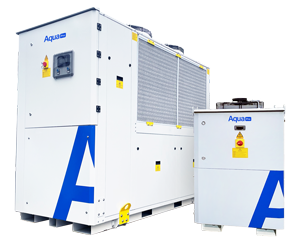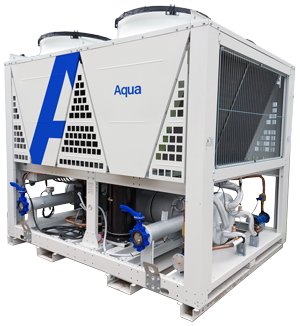The Client –
Global Glass Manufacturer
The Challenge –
Manufacturing Continuity During Production Facility Upgrade
The Solution –
Energy Efficient Temporary Adiabatic Cooling System
Timed with existing furnaces nearing the end of their lifecycle, an upgrade of the float glass production line at our client’s site in the north of England, was planned to include a new float glass furnace with increased melting capacity and environmental performance.
Our Hire Director, Ben Davies explains how we supported the project with energy efficient and precise temporary cooling equipment – designed, installed and commissioned without interrupting their operation, while they awaited the arrival of new capital purchased equipment.
Situation
Part of the furnace upgrade included total replacement of their cooling towers which provide cooling to the furnace bath.
The new capital equipment wasn’t going to arrive on site for another 4 months, however the operation needed to continue during this period to fulfil production requirements and customer orders. Any disruption would have created huge financial implications.
Solution
We were involved in a tender process about a year prior to the upgrade commencing. This enabled the team to plan for all the temporary cooling requirements to be designed, installed and commissioned within a 2-week shutdown period.
We specified and installed a system comprising of:
- 6 x adiabatic coolers – achieving 3MW of cooling load, each paired with a 22kW pump set
The adiabatic coolers use ambient air to remove the heat from the cooling medium, aided by a powerful adiabatic spray system to maintain heat rejection performance in warmer ambient temperatures.
When the ambient temperature goes above 22.5°C the adiabatic sprays kick in to help the coolers achieve the required 30°C setpoint. Even in a worst-case scenario of 30°C dry bulb ambient temperature, the units will still provide a stable supply temperature of 30°C to the process.
- A bespoke 9000L buffer tank
- Around 1300M of flexible hose
- 3 x bespoke 12” flange manifolds
Due to the extremely high flow rates required for their system, the team fabricated and installed 3 x bespoke 12” flange manifolds to their various processes.
From this manifold, multiple 4” lines were run and carefully balanced using our rental double regulating valves.
A single, large power source was also split down into smaller, motor rated feeds to adequately protect the rental equipment using our temporary power distribution equipment.
Results
Our temporary adiabatic cooling equipment, installation and commissioning provided an energy and cost-efficient solution – bridging the gap between the old cooling towers being removed and the new capital equipment being commissioned.
This enabled our client to complete their major furnace and cooling tower capital investment project on time and to budget.
The whole temporary project was completed during their 2-week shutdown period, so that production would not be affected.
We are currently the only temperature control company in the UK to offer adiabatic coolers as standard within our hire equipment range. It’s important to us to be able to offer our customers these units due to the excellent energy and cost-efficiencies they deliver.
Being able to provide these units for this project as opposed to large screw compressor chillers, cooling towers or dry air coolers has saved the site from higher energy and operating costs, installing additional on-site power to cope with more power-hungry units, additional H&S obligations, risk of legionella or inadequate cooling over the summer months.



